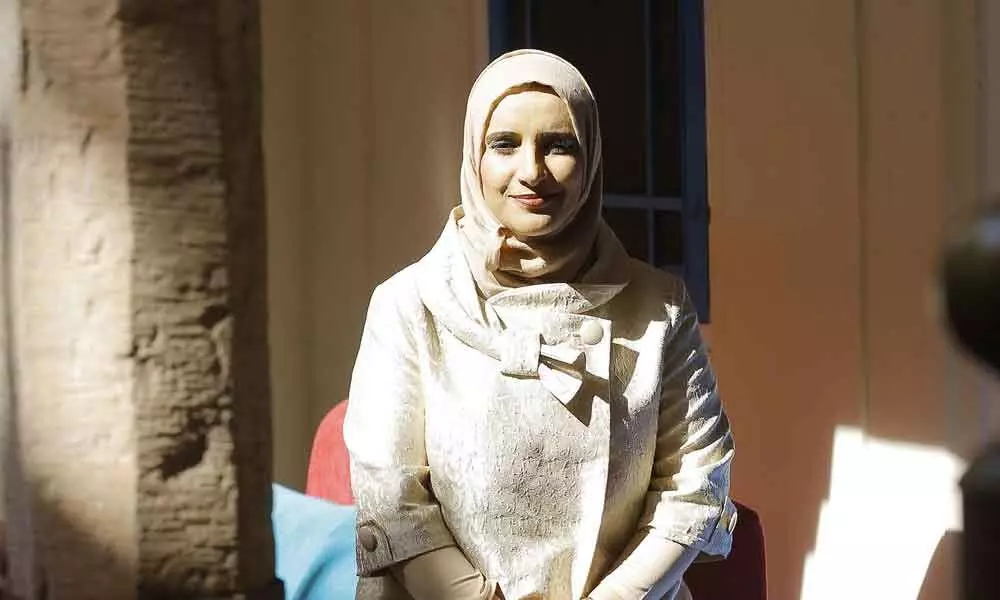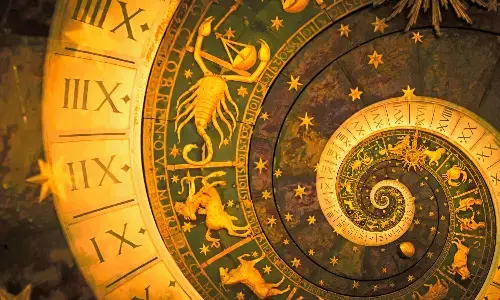When we don't trust the imagination of women

At the Jaipur Literature Omanese writer, Jokha Alharthi, talks about her book, the first one by an Arab to win the prestigious Booker prize
She says that the book saved her in many ways. That it facilitated a certain relief. She wrote it in a strange land. Amidst searching for apartments in the UK, taking care of a small baby and writing a PhD thesis in a language she was not comfortable with.
Well, even the weather was sulking.
But she vividly remembers those long hours in the night, when she went back to her language to write Booker-Prize winning 'Celestial Bodies'. "In those moments, I was close to my own metaphors. I entered a familiar world and its magic through a language which I knew."
Omanese writer Jokha Alharthi is in a strange land again. This time, talking about the first book by any Arab to win the prestigious Booker at the Jaipur Literature Festival. But she is relaxed. There are people who can translate for her. But no, she would rather do the talking herself. By now, the world knows her words. And the silences.
We talk about the reaction back home when the news of the award broke and she remembers her photos being put up at Malls and the airport. She then smiles and whispers, "But some were not very happy.
They expected a better-known and more experienced writer to walk away with it. Also, the fact that many aspects of the Omanese life were made public. Things, which were not really ideal. After all, every society tends to think that it is perfect."
Optimistic that the honour will help create a window to the rich Arab literature, she says, "Our literary traditions go back 1700 years and definitely deserve to be acknowledged. I hope my book makes the contemporary generation open its eyes to us."
Adding that literature has roots in reality, the author insists that growing up in Oman, which has three sects of Islam and boasts of multiple languages, traditions and diversity in every aspect has helped shaped her sensibilities as a writer.
"All that diversity exposes you to so much richness and a multitude of experiences."
At a time when 'local experience' is the buzzword, she asserts that an author writes about what she knows, and the world appreciates its international values.
Alharti, whose next book's ('Bitter Orange') English translation will hit the stands in 2021 laughs that she doesn't know when to stop writing. "Probably that's why it took me five years to complete 'Celestial Bodies'.
I have to force myself and just send the book to the publisher."
Talking about the fantastic English translation of 'Celestial Bodies' by Marilyn Booth, the author says that every language has its own logic that needs to be accepted.
"Booth has done a very honest and precise job. Every time she finished a chapter, she would send it to me to read. Many a times, I would send her photographs of things I had written about."
As we talk about a male character from her book, she asserts that it would be unfair to assume that only women were repressed. "Even men can be victims. I work with young students and know so many men who have been subjected to so much unfair authority."
In these times of Islamophobia, the writer hopes that the world acknowledges the fact that Islamic world is not just full of wars and problems.
Smiling that most people think that whenever a woman writes, she would be telling a tale from her own life, Alharthi says, "Perhaps the world doesn't trust the imagination of women."
















